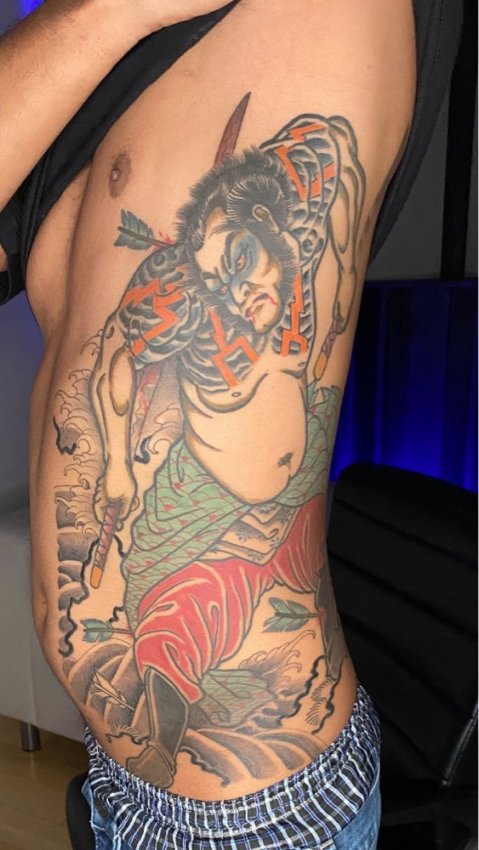At Hart & Huntington, we welcome people from all walks of life. You’re free to be whoever you are when you sit in our chairs. And we’re here to make sure you feel both comfortable and at ease with your tattoo experience.
Regardless of how light or dark your skin tone is, our artists are fully trained in creating custom tattoos that truly suit you. Whether you want something subtle or a statement piece that pops with color, we’ve got you covered.
That’s right, you can still get a color tattoo if you have dark skin tones.
It’s a common misconception that colored ink doesn’t work on dark skin. Hart & Huntington tattoo artist Lacey Rose knows that’s not the case.
LR: You just have to know the right colors to use based on the skin tone you’re working with.
Tattoos by Lacey Rose
If you’ve got dark skin and have been to a tattoo shop before, you may have also been told that you’re going to have to really pack the in color for it to show up on your body.
LR: That’s also not true. Darker skin is actually more sensitive to color, so you have to pull on the reins as the tattoo artist and play around with the pigment based on the person’s unique skin tone.
Hart & Huntington tattoo artist Mark Fernandez can speak to that, too.
MF: The more pigment you have in your skin, the harder it is to see colored ink. It’s like looking through a tinted window. You have to apply color differently for it to show up.
Tattoos by Mark Fernandez
Not a lot of tattoo shops specialize in tattoos for various skin tones. But we do. We know that primary colors with high pigment show up best on dark skin. Pastel hues have too much white in them, which dark skin tends to absorb. In fact, we often fix tattoos to make them less muddy.
MF: We strip them down and remove any unnecessary black gradient, so it becomes clearer. Just a simple outline and some color is a good way to go about tattooing darker skin. Less is more.
LR: When you get a tattoo, ink is embedded in your skin. It’s not like brushing acrylic paint on a canvas, which sits on top of the surface. That’s why lighter colors like white won’t necessarily show up as ‘bright white’ when you have a darker skin tone as your background. You’re not going to see yellow on dark skin, but if I take a hard red and a hard yellow to create a bright orange, we can achieve the same effect.
When it comes to tattooing in general, it’s far from black and white.
LR: Everyone has unique skin. Elasticity and thickness depend on your age. Older people, for example, tend to have much thinner skin. Your skin’s texture is also telling of where you’re from and your genetic makeup—how it adapts to humidity, to the sun, and how you spend your time. If you work outside all day, you’re more likely to have more sun damage.
The older you get, the more your skin is prone to wear and tear. The same goes for if you gain and lose weight. And how well and how often you apply moisturizer.
LR: All these different factors determine how your skin will react to a tattoo. People who take good care of their skin—apply lotion every day and don’t sit in the sun for long periods of time—are heaven for a tattoo artist!
Tattoo by Lacey Rose

We take all of this into consideration before the needle touches your skin so you can show your true colors.
LR: Just don’t assume you can’t have your dream tattoo because of the color of your skin.
Tell the artist exactly what you want and let them adapt it to fit your unique skin type and tone.
LR: If you see a design on a lighter skinned person, don’t assume you can’t have that same tattoo because you have a darker tone. They may have a ton of small details on their tattoo that could get lost on your skin, so we’ll simplify the design so that you can broadcast it at its best. There’s always a way to make it work for you.








